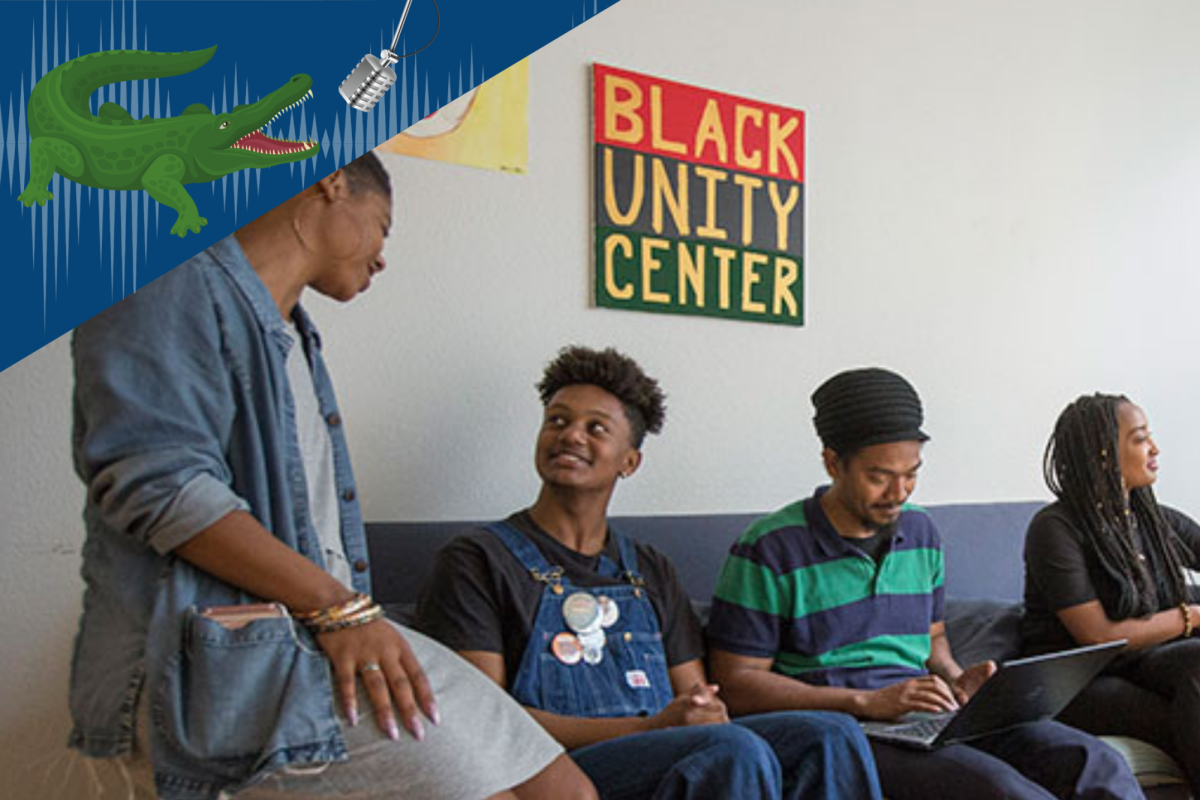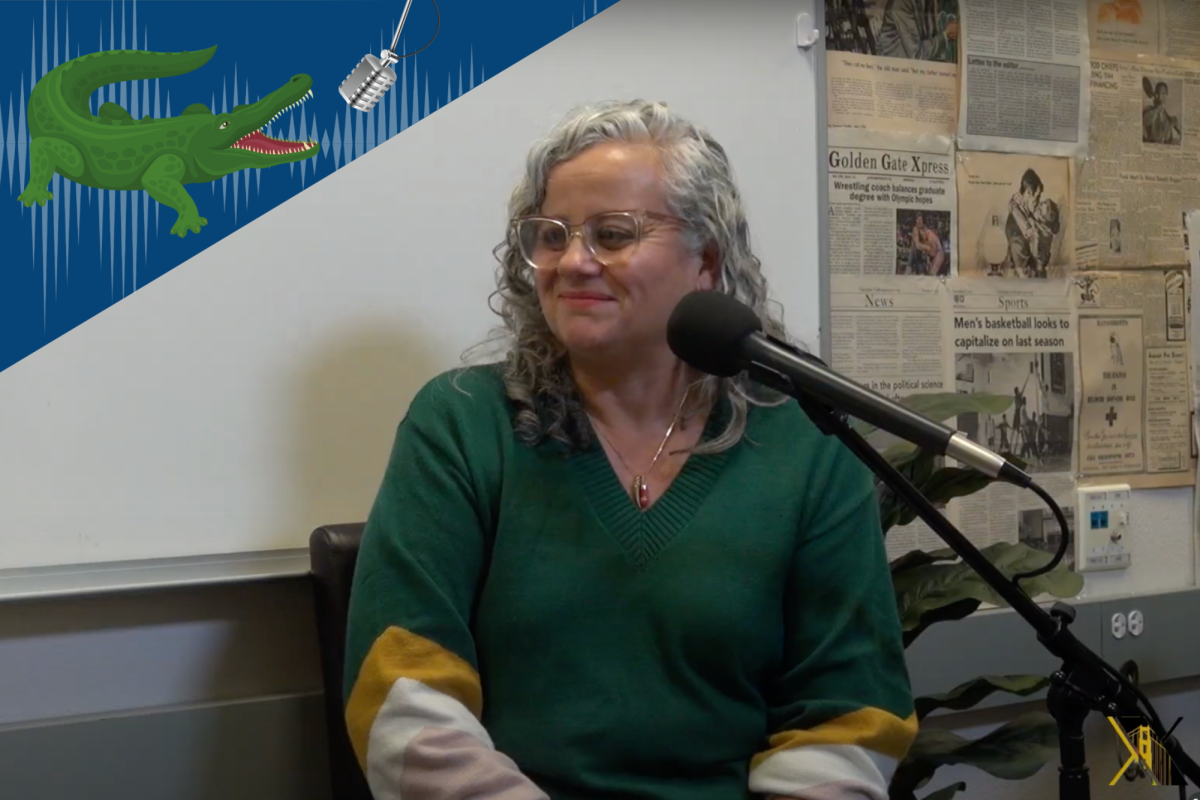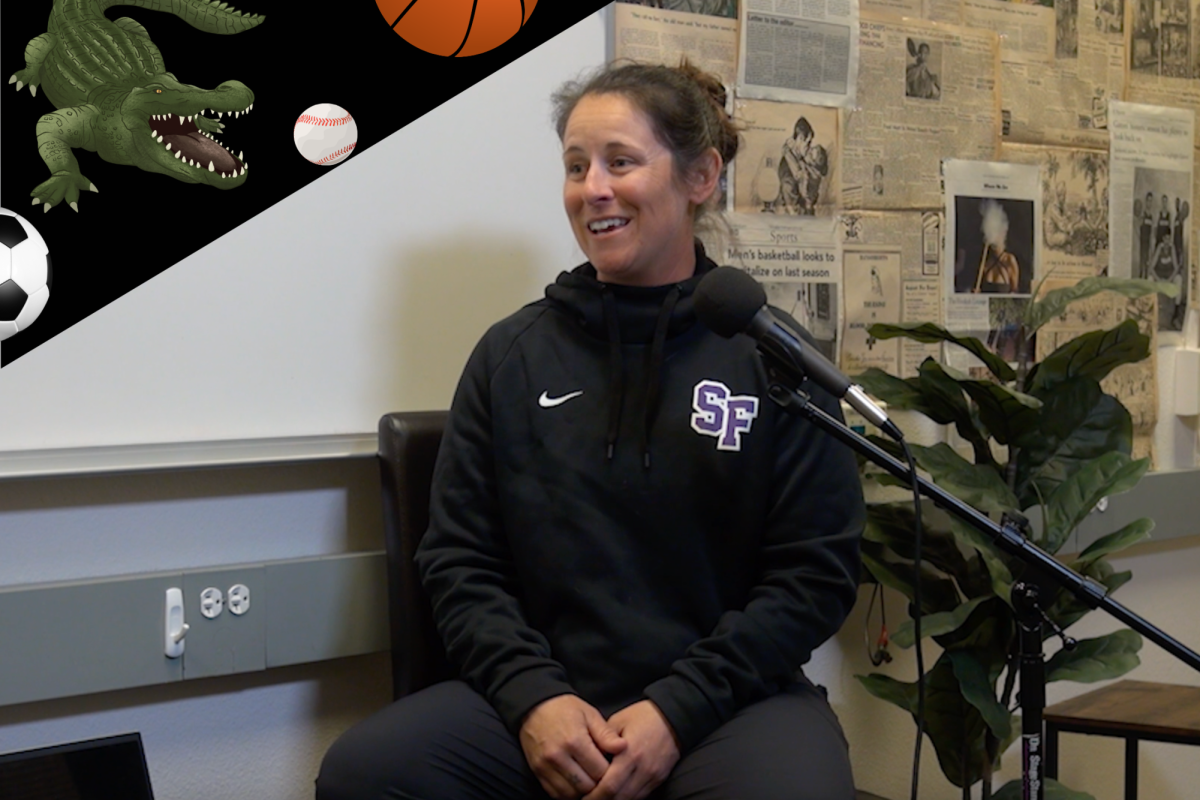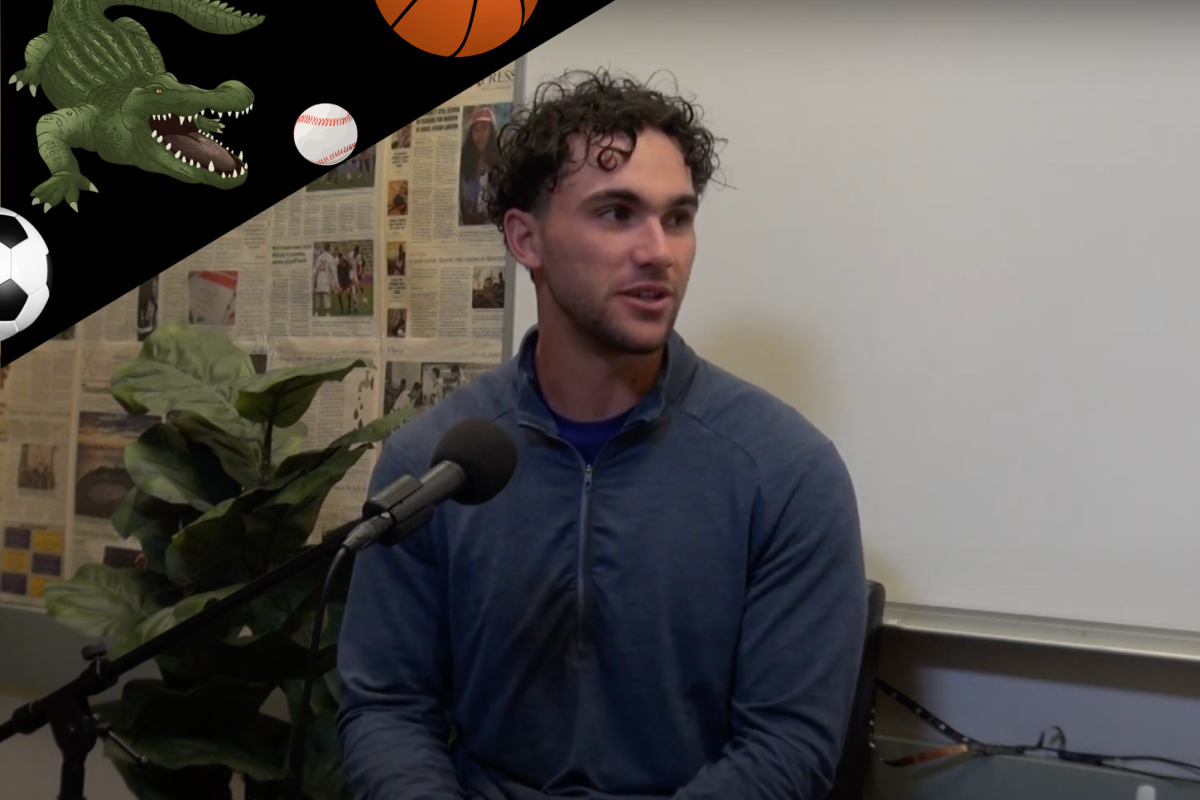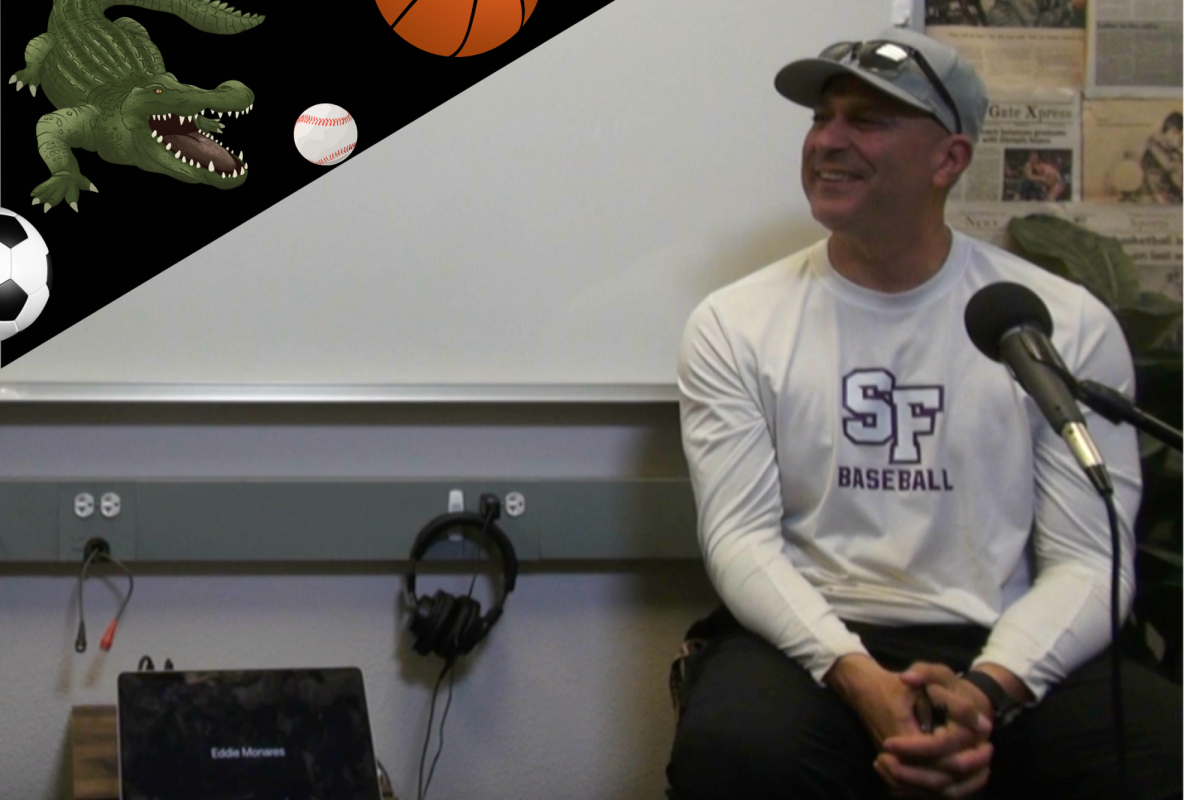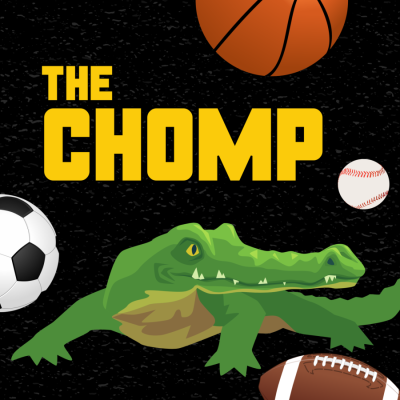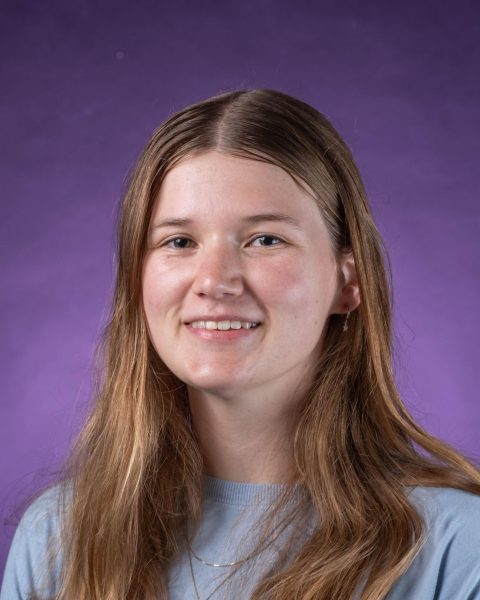Intro
Hannah Straily: 00:00 – 00:24
Hi everyone and welcome back to another episode of Gator Talk. This is Hannah Straily, the multimedia editor for the Golden Gate Xpress. Today I’m joined by Zac, a student here at San Francisco State University who is majoring in anthropology with a minor in museum studies. Today, we’re going to be talking a little bit about the social life at SFSU. For those that don’t know, this is a commuter campus and Zac is actually a commuter who drives up from Pacifica. I was wondering if you could tell me a little bit more about that?
Interview
Zac Palacios: 00:25 – 01:13
I’m actually coming up here probably about two to three days a week for classes and I definitely do my best to make it here on time. Traveling from Pacifica to here does seem like kind of a quick drive but with the given traffic coming from Pacifica, it can take up to 20 to 25 minutes. I definitely just do my best to always drive safely because, unfortunately, Pacifica is like a one-way in, one-way out type of city. There’s high schools and middle schools throughout the city so there’s always traffic, so I always try to beat that traffic. And at times I just make sure that I get here early enough to get myself some time to also find parking.
Hannah Straily: 01:14 – 01:18
Zac, you’re also a transfer student from Skyline College. What made you decide on SF State?
Zac Palacios: 01:19 – 01:49
From Skyline College to SF State — I did it because I felt like I was just itching to get out of the community college system. Not only that but I was always interested in attending the school that my older sister went to. She used to go here at SF State and I always wanted to explore the campus simply because, when I was in junior college, I just saw all these students just looking, I don’t know, super studious and just ready to learn.
01:50 – 02:26
And not only that, I also just picked this school because it’s just so close to home, you know? And it was going to kind of be a gateway for me to go ahead and explore the city even more ’cause I did some exploration when I was at City College of San Francisco. Along with that, at Skyline I still went to the city. I felt like SF State was going to fulfill its purpose. Not only that but I was just also interested in the anthropology program that they had here because I did some research on it, and I was very excited and eager to see and just figure out what the experience would be in an anthropology class here at SF State.
Hannah Straily: 02:27 – 02:46
That’s awesome. I’m glad you were actually able to find something that you’re happy with academically. Another thing that I was curious about is how it’s been for you in terms of social life. You mentioned that it’s like a 20-30 minute drive from Pacifica but that’s a little different from those who are like 20-30 minutes away by transit or even just a short walk. I was wondering if you could tell me more about the communities that you lean on.
Zac Palacios: 02:47 – 03:25
I have to say, I do want to mention — I was the past Vice President of the Latinx Queer Club here at SF State. And it was definitely just a really big honor to be able to be put in that position. I believe it’s the first of its kind of a club and during my time as Vice President, I really, really enjoyed working with the team that we had around us because it was very much friend-oriented and it was really based in creating a space of belonging, understanding and community.
03:26 – 04:25
Definitely, I felt like when I transferred here at State, I definitely was alone, I had one friend. And we just kind of bonded over having similar ethnicities and just kind of being new to the space. The club was really kind of a way for myself and those who were a part of the founding team to create a space that would be left open for people to feel comfortable to be themselves and to feel like they have a chosen family in a way. Because being queer in the Latin community is very intense at times. You know, you have to battle with religion, then you gotta battle with homophobia and transphobia and everything else. So it’s very hard at times to be able to just be yourself in front of your family. But if you’re yourself around people that are similar to you being in the queer community, it makes it a lot easier.
04:26 – 05:00
In my own personal experience as a queer person, I really learned everything on my own. I’m the only queer person in my family of five. And as I learned things on my own, it was a lot of trial and error. It was a lot of fear, it was a lot of anxiety, it was a lot of stress, it was a lot of bullying. It was a lot of just separating myself and being ostracized because I was different. And when I got to college, I was finding myself. And I feel like I found an adult version of myself but I’m ever-evolving as a person.
05:01 – 05:19
But when I was talking to these kids and seeing their eyes light up and just happy to know that we exist — like a space exists, it just filled me with a lot of joy. I realized that through that, we would also be very big advocates for other services as well and for other clubs as well.
05:20 – 05:59
We definitely never wanted a student to be without a space. If it’s not us, then it can be somebody else. We would talk about the Latinx Student Center, the AAPI Student Center, the Black Unity Center and we would talk about the — I believe it was another program that was up in student services. It’s next to EOP and, I believe, Trio. It’s slipping my mind right now and I feel so bad because I used to use their service all the time. And we just wanted to also be like a gateway as well. So we wanted people to be put into the right direction to find like-minded people.
06:00 – 06:57
Not only that but like I would say for myself, the Latinx Student Center — that place has literally been a second home. There I was able to be a very rare and interesting extroverted version of myself. I’m very to myself at times but I felt like I won’t be able to make friends or find my community if I just stay silent. So the Latinx Student Center was just a place where I was able to find the community through similarities of culture and appreciation of other cultures within the Latin Community. But I have to give it up to EP, Emmanuel Padilla, who’s in charge of the Latinx Student Center. He, at least to me, has been like a great mentor and really allowed the place to kind of be open to people. So it definitely feels like a home away from home.
06:58 – 07:40
I actually was a volunteer for IDEAS, which is like the undocumented student club here at SF State, and I did that for the simple fact that I wanted to show my support and allyship to undocumented students. I was also friends with the President of this club at the time, and I wanted to do anything in my ability to uplift and support them and to represent and to spread information that for undocumented students, there are services available for them and also just a place for them to be able to do homework, to breathe — not only that but have access to different resources that are specified for undocumented students.
07:41 – 08:23
And through my time volunteering there with them, I’ve just come to recognize that, you know, the undocumented student life is a stressful one. It has a lot of obstacles and, you know, undocumented students definitely just succeed. And I mean, honestly, they deserve to be here. The whole undocumented situation, especially with the given turnout of the presidential election, is also a bummer but I did some time with that too, and I felt like I was able to get a better understanding of what undocumented students need. What undocumented students go through. It just really caused me to be more of an ally, if anything.
Hannah Straily: 08:24 – 08:28
What made you decide to get as involved as you have been with the communities and clubs on campus?
Zac Palacios: 08:29 – 08:48
I think it’s because I recognize that I can’t really do this on my own. This college thing on my own. I felt very much like very stubborn and like I can do this myself, I don’t really need help that much. But I believe as much as it’s important to have good grades in your classes. It’s also important to have a healthy social life.
08:49 – 09:08
I think it allows you to have a break from school and the quizzes and papers and lectures to watch and stuff like that. It also allows you to figure out who you are by bouncing around into different social groups, and also just figuring out what type of energy you want to associate yourself with.
09:09 – 09:37
I also think specifically being queer on campus, having a group to go to for information or for a listening ear or to have assistance on homework. It really changes the experience and it honestly makes it that much better. I learned the hard way that doing it on your own isn’t really realistic. You need a community around you to support you.
Hannah Straily: 09:38 – 09:44
You talked about it briefly already but I was wondering if you could tell me more about what it was like to be one of the co-founders of the Latinx Queer Club?
Zac Palacios: 09:45 – 10:03
It really was just such an epic moment, I think in my school career. I never thought that I would have been a part of leaving the space for the next gen[eration] to do what they want with it and have their own adventures, stories, and experiences with it.
10:04 – 10:24
Not only that but I think about how I, hopefully, am making future Latinx Queer individuals or just queer individuals because I also wanted to just say that, you know, you didn’t have to be a Latino to join the club if you wanted to show up and be with us, perfectly fine. It was always open doors.
10:25 – 10:47
But just to know that I left a space for people to use and to do what they want in their own way, and be proud in their queerness and be proud of their truth and be proud of their Latin identity — then I did my job. And I think that’s what I look back on when we were creating it, we were very nervous. We were like, we don’t even know what we’re doing but we know what we’re doing at the same time.
10:48 – 11:14
And it was just such a wonderful time. And I think, if anything, without that club, I wouldn’t have found a chosen family. It really kind of set me up for success in the sense of being more confident in who I am. And you know, stronger and to fight for what I believe in. Also, I just have great skills that I can apply to anything now, being a part of it.
Hannah Straily: 11:15 – 11:27
Yeah, that’s a really impactful thing to leave behind. The last question that I had for this evening is what advice you would give to any incoming students or those that are already here on campus, who have been having a hard time finding their place?
Zac Palacios: 11:28 – 11:51
I would say for those who are looking for their community: be open, say hi, socialize — fight your introvertedness. That’s how you start opening doors, sometimes with a simple hello. Not only that, but be like me, and if there’s a community that you don’t feel like they have a space for on this campus, make the space. Have the courage to do so.
Hannah Straily: 11:52 – 11:57
Amazing. Thank you so much for sharing and joining me, Zac. I really appreciate you being open about your experience.
Outro
Hannah: 11:58 – 12:08
That is all that we have for today. Once again, this has been Hannah Straily with GGX News. Hope you guys have enjoyed this episode of Gator Talk.





